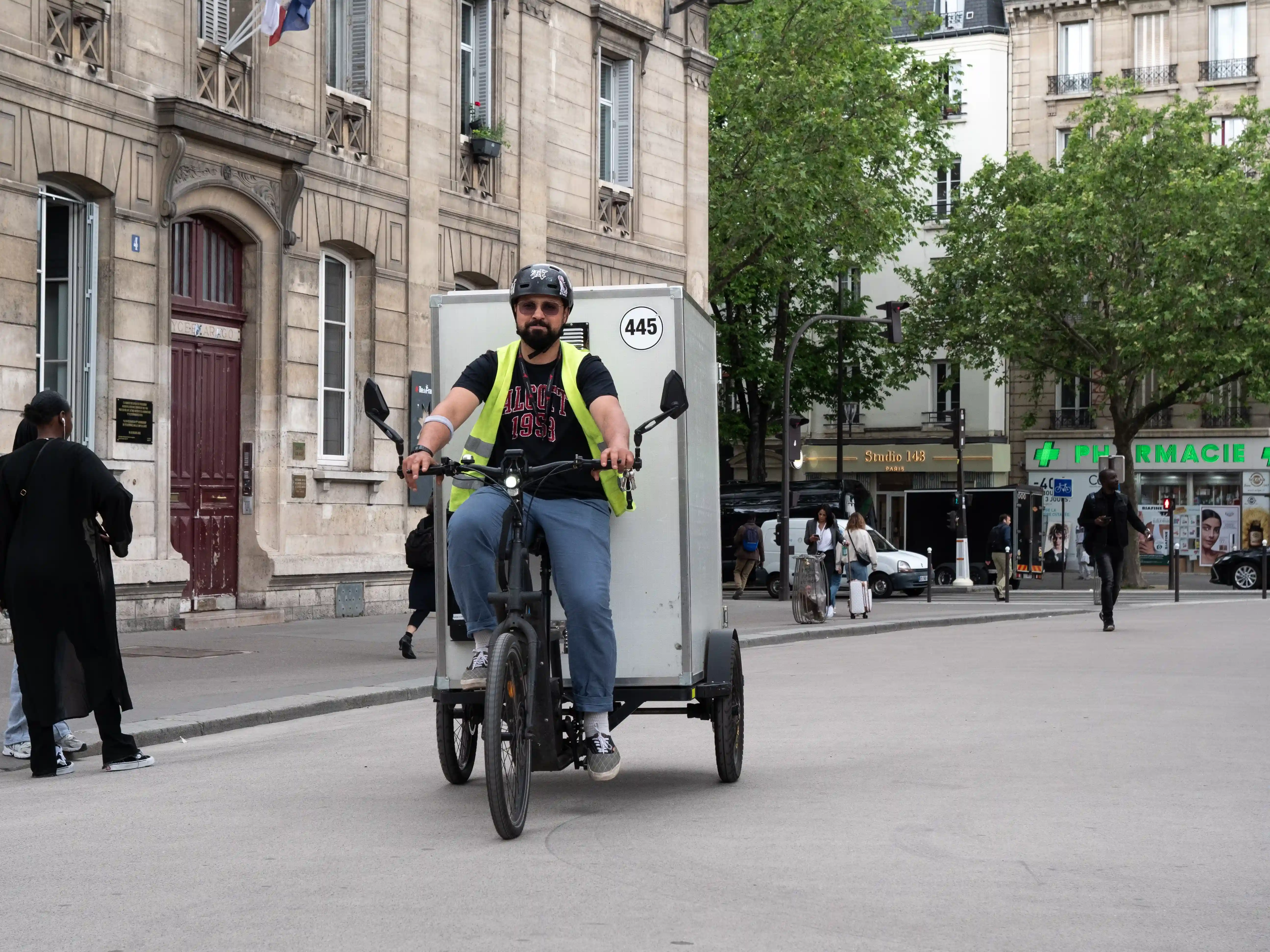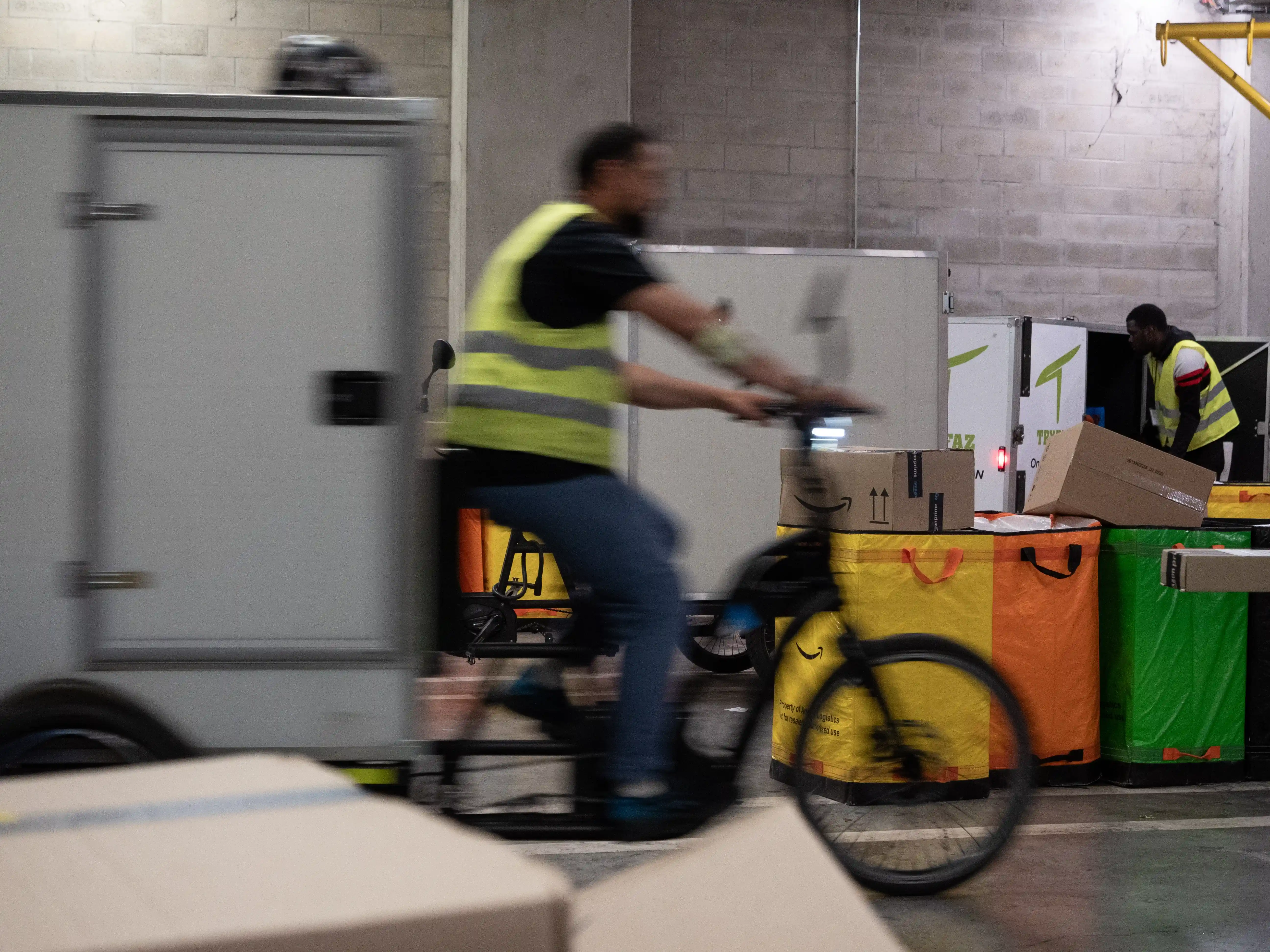
Urban mobility: the impact of cargo bikes for professionals
Urban mobility is a crucial issue for cities, faced with population growth and the saturation of traditional modes of transport. Among the emerging solutions, the cargo bike or tricycle stands out for its ability to combine efficiency logistics and respect Of the environment. This type of bike, designed to transport heavy and bulky loads, directly offers viable alternative To vehicles motorized, often responsible for congestion and pollution.
The rise of cargo bikes in urban areas
The rise of cargo bikes in modern cities represents a significant transformation of urban mobility, adapted to all ecological and logistical challenges.
These commercial vehicles are increasingly visible in urban centers, facilitating greener and less cumbersome transport.
Indeed, these vehicles are designed to easily navigate congested streets where traditional vehicles struggle to navigate.
There is a significant increase in the adoption of these bikes. for several reasons :

Favorable policies
Government policies play a crucial role in the adoption of cargo bikes. There are numerous incentives to promote the use and adoption of cargo bikes, and more generally sustainable transport.
Among these incentives, devices financiers, but also improvements and/or tax reductions.
Ecological bonus: The ecological bonus consists of assistance granted to people who buy or rent a land vehicle equipped with an environmentally friendly engine. Its amount varies according to several criteria (engine, vehicle price...) but can reach up to 1000€ for businesses.
Conversion bonus: This is a bonus of up to €1500 for the purchase of a new electric cargo bike. In order to obtain this assistance, several conditions must be met, namely:
- Have decommissioned a private car or van (Crit'Air 3, 4 or 5 vehicle), in service since more than 1 year
- The vehicle must be registered:
- before 2006 for gasoline
- before 2011 for diesel
- At Same name That the electric bike
- Have bought or rented (for at least two years) an electric bike nines
- The electric bike Do not have to have a lead battery and must be tagged
The request must be made on the Government site after purchasing or renting an eligible vehicle.
ZFE override: Several French cities have established ZFE (low emission zones).
People who live or work in these areas can get an increased bonus. ZFE of 1000€ for the purchase of an electric cargo bike. Note that this financial assistance can be combined with the two previous ones.
Regional aids: Local authorities and ZFE also offer specific assistance to encourage professionals to choose cargo bikes.
You can contact your city for more information on this subject. Also, remember to clearly distinguish between assistance to individuals and assistance to professionals.
In addition to these financial aids, many urban areas are remodelled for be more user-friendly with secure bike paths and reserved parking spaces.
These measures are often accompanied by restrictions on motor vehicles in city centers, making cargo bikes an even more attractive logistical alternative.

environmental awareness
In the current climate context, the use of cargo bikes is particularly valued for their low environmental impact and represents a serious alternative to conventional internal combustion vehicles.
With no greenhouse gas emissions, three-wheel scooters are ideal for green city initiatives.
In addition to their environmental benefits, cargo bikes reduce also noise pollution, contributing to quieter and more liveable cities.

Logistical efficiency
Cargo bikes offer an effective response to the challenges and logistical challenges of dense urban centers.
Indeed, these bikes can easily navigate at Through heavy traffic and can easily access restricted areas where conventional commercial vehicles cannot access.
This makes it not only an effective solution but also more reliable for last-mile delivery, because bicycles avoid traffic jams that can significantly delay conventional commercial vehicles.

Economic advantages
Finally, the cargo bike offers interesting economic advantages. They require a much lower initial investment than conventional commercial vehicles, making them more accessible even for small businesses and/or individual entrepreneurs.
In addition, the maintenance costs and operating costs of these utility bikes are considerably lower to those of conventional vehicles (fuel, maintenance, etc.).
These savings can in particular be reinvested in the business.
The development of cargo bikes among professionals
The growing adoption of cargo bikes among professionals reflects a profound transformation in the way mobility and logistics are conceived in urban areas.
These vehicles, which combine practicality, efficiency and respect for the environment, offer an adapted response to urban challenges and constraints.
Several reasons push delivery professionals (but not only) to choose a tricycle for their daily operations.

Flexibility & accessibility
As mentioned earlier, the cargo bike offers a very large flexibility and accessibility in urban areas.
This flexibility & accessibility is essential for delivery services, but also for professionals who need a intra mobility-Urban.
Note that in addition to the advantages in terms of flexibility & accessibility, cargo bikes can be adapted to specific business requirements.
For example, there are cargo bike models adapted to transport of foodstuffs With a total respect for the cold chain.

Reduced operational costs
The cargo bike offers economic advantages for professionals, especially in terms of reducing operational costs.
Unlike traditional commercial vehicles, where fuel, maintenance, repair or even parking costs can be significant (especially in metropolitan France), the cargo bike escapes these fees.
In addition, its use contributes to a reduction in the carbon footprint, aligning business practices with CSR sustainable development goals.

Impact on urban logistics
The role of cargo bikes in the revolution of urban logistics is undeniable. They offer an optimal solution for last-mile delivery, an aspect that is increasingly critical as online commerce continues to grow.
By integrating cargo bikes into their fleet, businesses can increase their logistical efficiency, reduce delivery times and upgrade customer satisfaction.

Future perspective
The future of cargo bikes among professionals is very promising.
With technological advances, their efficiency and autonomy are likely to improve even more.
In addition, the growing trend to promote cycling cities through urban developments and public policies is also supporting the expansion of this mobility solution.
Cargo bikes are no longer just an ecological alternative for individuals but have become a central part of the logistics strategy numerous businesses.
Their ability to meet the modern challenges of urban mobility positions the cargo bike as a essential professional tool for the future.
A bike adapted to all jobs
Cargo biking for professionals is not limited to delivery or logistics services only. Now, artisans, retailers and even health professionals use cargo bikes.
For local artisans and retailers, bicycles represent an effective solution for transporting tools, supplies or equipment in urban areas. With the help of bicycles, these professionals benefit from greater ease of movement, especially in high-density areas where parking is often a challenge.
The same goes for local retailers, who can use the cargo bike to restock their points of sale. In addition to bypassing urban constraints, cycling reinforces the eco-responsible image of businesses, an argument that is increasingly valued by customers.
Health professionals also use bicycles to transport equipment or medications.
Finally, the bicycle is also used in the field of events for the transport of equipment, for mobile stands or equipment.
In conclusion, cargo bikes adapt to all professions with different layouts but also specific certifications to meet business requirements (controlled refrigeration transport, night-time delivery, etc.)
The problems of cargo bikes in urban areas
Although cargo bikes offer significant advantages for urban logistics, they also face several problems in urban areas.
First, the issue of safety is paramount.
Indeed, cohabiting with other road users (pedestrians, motorized vehicles, other cyclists, etc.) can be tricky at times, especially during peak hours.
Second, infrastructures are not always adapted to utility bikes. Some existing bike paths may be too narrow or congested, making it difficult for cargo bikes to pass.
Also, secure parking for these bikes, which are often targeted by thefts, remains a problem in some cities.
These challenges require a proactive approach by cities and businesses to adapt the urban and regulatory environment in order to maximize the potential of cargo bikes for professionals.
By offering a practical solution to logistical challenges while reducing the carbon footprint, cargo bikes are not only a means of transport, but a paradigm shift in how we think about business travel in the city. They are a perfect example of how innovation can simultaneously support ecological and economic goals.
.svg)

.svg)
.svg)


